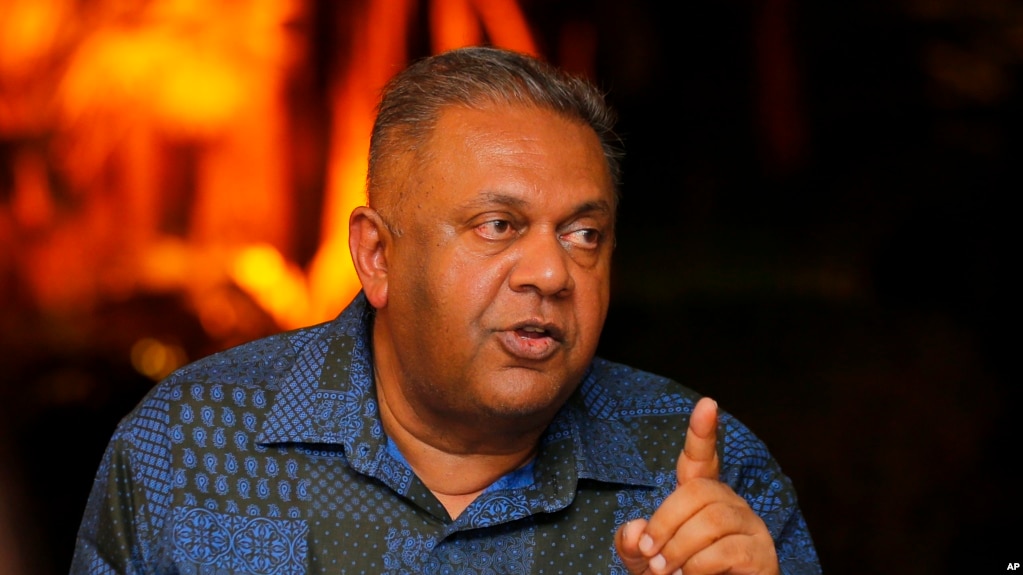by AP on Voice of America, February 7, 2017

Sri Lankan Foreign Minister Mangala Samaraweera gestures as he speaks to foreign correspondents at his residence in Colombo, Sri Lanka, Feb. 7, 2017.
COLOMBO, SRI LANKA —
Sri Lanka says it needs more time to fulfill promises given to the U.N. human rights body to investigate war crime allegations from the nation’s long civil war, which ended nearly eight years ago.
Foreign Minister Mangala Samaraweera told foreign correspondents late Tuesday that the government will seek more time at the next U.N. human rights session, starting Feb. 27 in Geneva.
Samaraweera said that Sri Lanka will commit itself to going ahead as planned even though it has not been able to achieve all that it wanted.
In a joint resolution in 2015 at the U.N. Human Rights Council, Sri Lanka promised to work toward ethnic reconciliation, including investigating alleged wartime abuses.

FILE – A group of Sri Lankan Muslims shout slogans, protesting against the U.N. and U.S resolution against Sri Lankan war crimes, during a demonstration as they march toward the U.S. embassy in Colombo, March 26, 2014.
It had promised the U.N., among other things, a truth-seeking mechanism, a judicial mechanism to prosecute those who are accused of human rights abuses and a new constitution that takes into account the island nation’s varied ethnicities and religions. However, little progress has been made.
According to U.N. estimates, up to 100,000 people were killed in the 26-year civil war, but many more are feared dead, including up to 40,000 civilians who are believed to have died in the final months of the fighting. Government troops and the Tamil Tiger rebels, who fought for an independent state for ethnic minority Tamils in the country’s north and east, were both accused of war crimes.
The U.N. human rights chief had called for a hybrid court with local and international judges. Sri Lanka agreed to the participation of foreign judges before backtracking and now insists on local courts investigating the allegations.
Samaraweera, however, said that Sri Lanka had agreed only to foreign participation at different levels in the judicial process, but not to have foreign judges hearing the cases.
The civil war ended in 2009 when Sri Lanka’s military crushed the Tamil Tiger rebels.